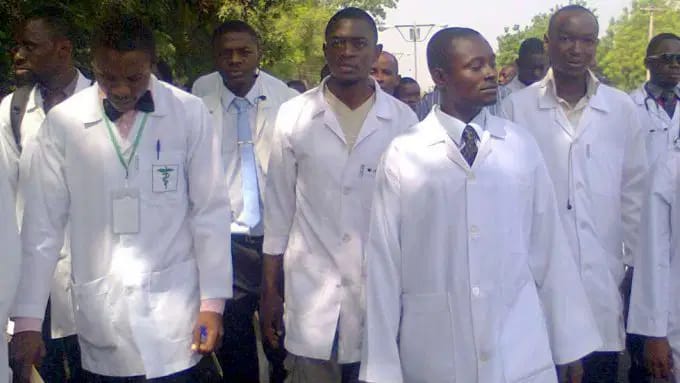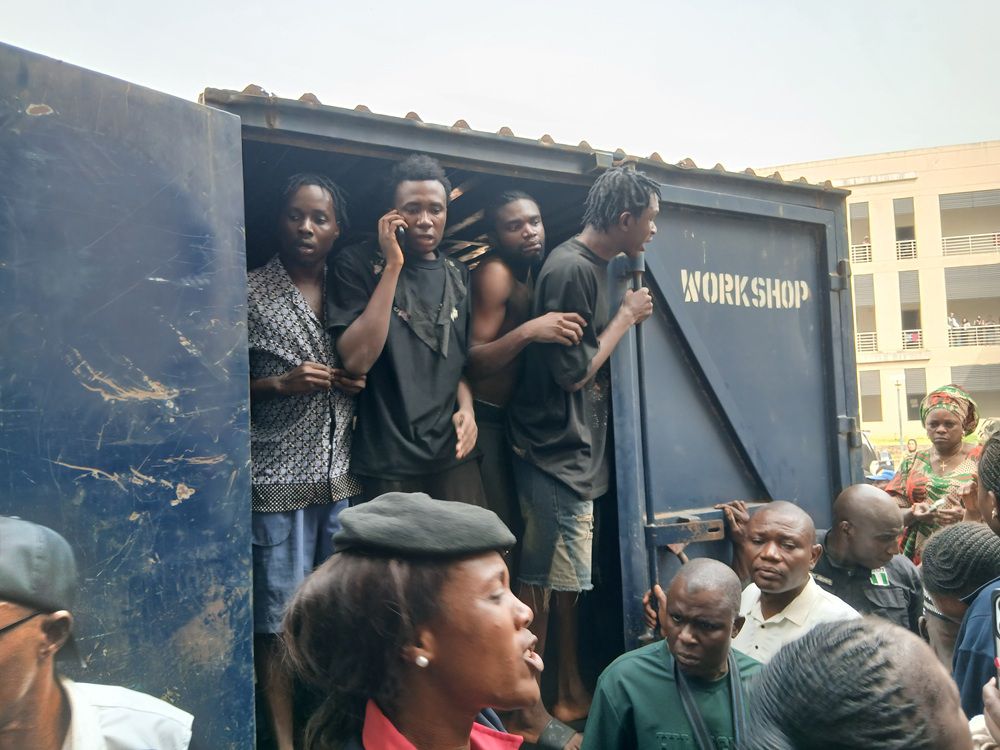A wave of distress has swept through Lafia, the Nasarawa State capital, following the complete shutdown of medical activities at the Federal University of Lafia Teaching Hospital (FUTH). The industrial action, embarked upon by the National Association of Resident Doctors (NARD), has brought healthcare delivery to a grinding halt, leaving patients stranded and medical services totally grounded.
The strike, which began over the weekend, has affected all major departments of the hospital, including the emergency ward, out-patient unit, laboratory sections, and antenatal clinic. When reporters visited the hospital premises, it was discovered that wards were empty, beds stood unused, and patients who had been on admission were evacuated due to the absence of medical personnel.
Resident Doctors Down Tools Over Poor Welfare and Working Conditions
According to the leadership of NARD, the decision to down tools was driven by long-standing issues of poor remuneration, unfavorable working conditions, and lack of basic welfare support for resident doctors across federal and state health institutions.
Dr. Jude Yepowudu, President of the Resident Doctors’ Association at FUTH Lafia, led an inspection of the deserted wards and disclosed that doctors were left with no choice but to embark on the strike. He lamented that most medical professionals can no longer meet their daily needs due to the country’s harsh economic reality.
“Many of our members can no longer pay rent, fuel their cars, or even feed their families. The situation has become unbearable, and the government has refused to act. We had to take this painful decision,” he stated.
The doctors emphasized that despite their essential role in the health sector, their welfare continues to be neglected, while the workload remains overwhelming due to the shortage of manpower.
Patients and Residents in Panic as Hospital Operations Collapse
The ripple effect of the strike has been felt deeply by residents in Lafia and surrounding communities. Many patients who depend on the teaching hospital for medical attention were seen leaving the facility in frustration and confusion.
A pregnant woman who came for her antenatal appointment said she was turned away at the entrance.
“They told us to go back because doctors are on strike. I was supposed to do my ultrasound today, but now I’ll have to look for another hospital,” she lamented.
Another patient, who brought his relative for treatment, narrated how they had to move the patient to a private hospital, which demanded exorbitant fees.
The ongoing strike has led to a sudden increase in patient traffic at private hospitals within Lafia, as residents scramble for alternatives. Many of these private facilities have already become overcrowded, resulting in longer waiting times and higher medical costs for patients.
Departments and Units Affected at FUTH Lafia
| Department/Unit | Status During Strike | Impact on Patients |
|---|---|---|
| Emergency Ward | Completely shut down | No access to emergency medical care |
| Out-Patient Department | Inactive; doctors absent | Routine consultations and follow-ups suspended |
| Laboratory & Diagnostics | Operations halted | Medical tests and scans unavailable |
| Antenatal Clinic | Clients turned back | Pregnant women unable to access routine checks |
| Surgical Ward | Procedures postponed | Increased risk for patients awaiting surgery |
| Pharmacy Unit | Limited staff presence | Drug dispensing severely affected |
The once-busy teaching hospital now operates like a ghost facility. The usual bustle of nurses, patients, and doctors has been replaced with an eerie silence, a visible testament to the deepening crisis in Nigeria’s healthcare system.
Root Causes of the Crisis
The strike by resident doctors is not new to Nigeria’s healthcare sector. Over the years, repeated industrial actions by NARD have often been triggered by issues such as:
- Poor remuneration and delayed salaries
- Inadequate working tools and poor hospital infrastructure
- Lack of hazard allowances despite exposure to health risks
- Unfulfilled promises from the Federal Government
- The growing brain drain as doctors migrate abroad for better opportunities
Dr. Yepowudu highlighted that despite several appeals to authorities, little to no progress has been made to address these challenges. He stressed that until concrete action is taken, the doctors will not resume duty.
Economic Hardship Intensifies the Doctors’ Plight
The ongoing economic difficulties in the country have compounded the doctors’ situation. Many resident doctors at FUTH Lafia reportedly struggle to afford transportation to work or pay rising rent prices.
The drastic increase in fuel prices and inflation has worsened the living conditions of healthcare workers, who have repeatedly called for salary reviews in line with the current economic reality.
Public Reactions and Growing Concerns
The strike has sparked public outrage and concern among residents, community leaders, and advocacy groups. Health rights activists have described the situation as a ticking time bomb, warning that prolonged strikes in critical institutions like FUTH Lafia could lead to preventable deaths and loss of trust in public hospitals.
A community leader in Lafia urged the Federal Government and the management of the teaching hospital to immediately intervene and resolve the dispute.
“This hospital serves thousands of people in Nasarawa and neighboring states. It is unacceptable that it remains closed while patients suffer,” he said.
Implications for Students and Medical Training
Beyond healthcare delivery, the strike has also disrupted academic activities for medical students of the Federal University of Lafia. As a teaching hospital, FUTH plays a crucial role in providing clinical exposure and hands-on experience for medical trainees.
The ongoing strike has therefore put academic schedules, clinical rotations, and professional examinations on hold, further deepening the educational setback in the medical sector.



